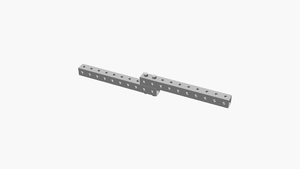Splicing frames: Difference between revisions
From
No edit summary |
|||
| Line 25: | Line 25: | ||
=Approaches= | =Approaches= | ||
Space bolts as widely apart as possible for strongest joint. Add additional bolts for an even more secure joint. | |||
Frames may be spliced together more than 2 wide in an alternating diamond pattern to form something akin to [[plates]]. | |||
=References= | =References= | ||
* [https://en.wikipedia.org/wiki/Splice_joint Wikipedia: Splice joint] | * [https://en.wikipedia.org/wiki/Splice_joint Wikipedia: Splice joint] | ||
Revision as of 08:04, 9 November 2021
Introduction
A splice joint is a method of joining two members end to end. The splice joint is most often used when structural frames are required in longer lengths than available. It is an alternative to other joints such as the butt joint and the scarf joint. Splice joints are stronger than unenforced butt joints.
Challenges
- Potential for bolt shear in load bearing applications.
Approaches
Space bolts as widely apart as possible for strongest joint. Add additional bolts for an even more secure joint.
Frames may be spliced together more than 2 wide in an alternating diamond pattern to form something akin to plates.
